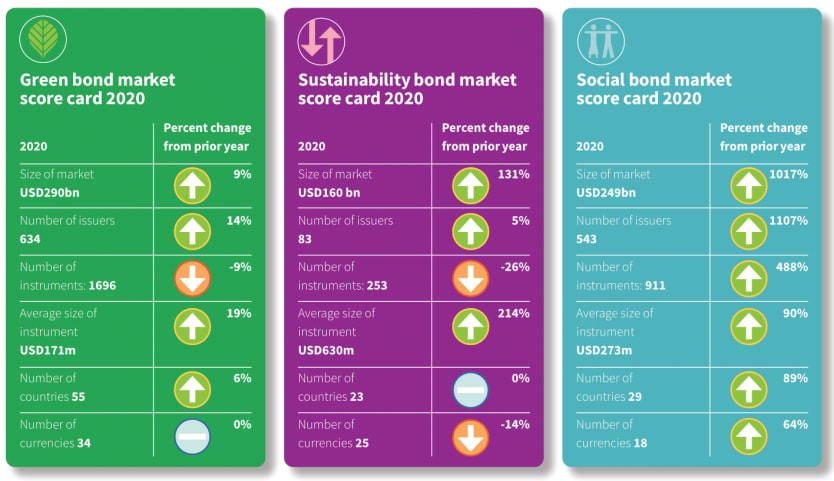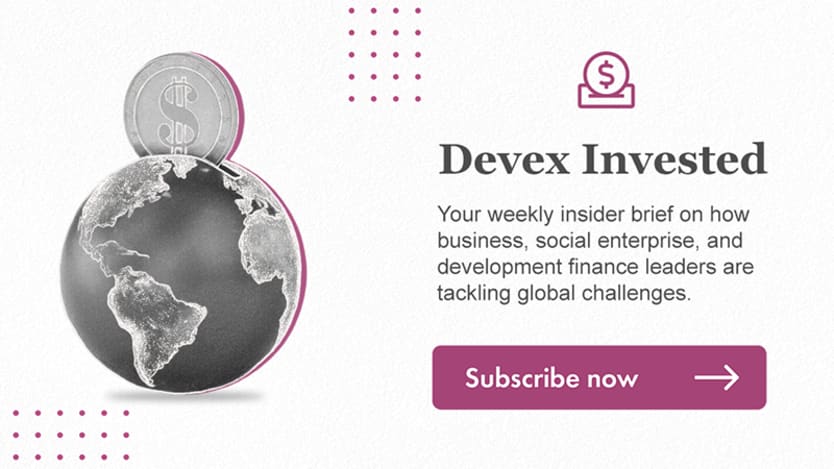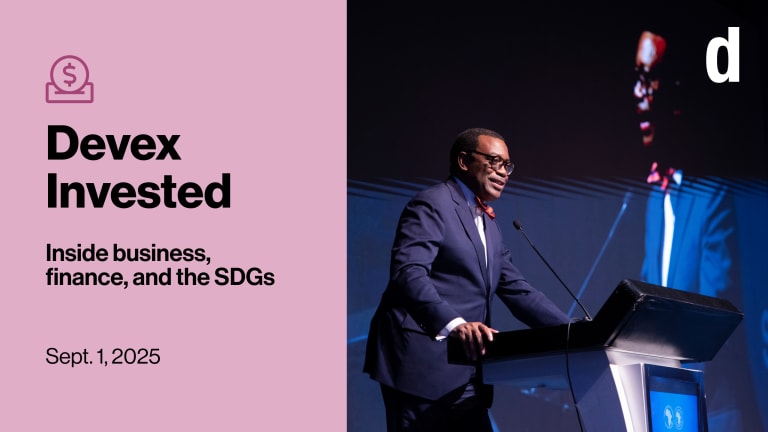
This is a preview of our latest edition of Devex Invested. Sign up to receive this weekly newsletter inside business, finance, and the SDGs.
Is a reckoning for funders of African entrepreneurs on its way?
The COVID-19 pandemic has illustrated the importance of investing in local African social entrepreneurs, given their proximity and knowledge at a time when travel and access have been curtailed. But will that translate into more funding in the form of grants or loans? My colleague Catherine Cheney explores this question and some of the barriers to driving more capital to local entrepreneurs.
• Investments targeting the continent often go to non-African founders. “DFIs [development finance institutions] are providing capital to funds predominantly investing in white founders. That’s crazy,” Sangu Delle, a Ghanaian investor and entrepreneur who chairs Golden Palm Investments Corp., tells Catherine. “You can’t come and tell me you’re investing in Africa, and your investment strategy is basically a neocolonial strategy. There has to be a reckoning.”
• Investors often rely on their own networks, which can exclude potential founders on the basis of gender, race, or education. Addressing these biases could help drive more funding to local African entrepreneurs.
• Donors and investors try to maintain control of the organizations they invest in — often by asking them to follow rigid guidelines. Relaxing some of those rules could mean more opportunity for founders currently being ignored.
• Private foundations and other donors need to rethink their role and become catalytic investors rather than just giving money away as grants, says Frank Aswani, CEO at the African Venture Philanthropy Alliance. By doing so, they can help build local ecosystems.
Read: How funders can drive more money to African entrepreneurs
State of bonds

Each year, Climate Bonds Initiative releases a report on the state of the market globally. But for the first time, the latest edition also looks at how green, sustainability, and social bonds fared in 2020.
What’s the score?
When the U.S. International Development Finance Corp. was founded in 2019, one of its major new authorities was the ability to make equity investments. But the issue of how government budget officials evaluate equity investments has plagued the agency since then, limiting its ability to use that power.
The government scores equity differently from loans, where the amount appropriated by Congress can be leveraged to invest far more. With equity, the government is assuming that all of the money will be lost, when it could instead use a formula to calculate expected returns.
Congress and the presidential administrations of Donald Trump and Joe Biden have made efforts to come up with a fix — but none has succeeded. Now, a legislative solution to the problem may be seeing new interest. During a House Foreign Affairs subcommittee hearing last week, Reps. Karen Bass and Chris Smith said they would like to work together to address the issue.
Your next job?
Sustainable finance specialist
Consultative Group for International Agricultural Research
Nairobi, Kenya | Dakar, Senegal
Up next
As part of its privatization process, the Ethiopian government is expected to announce the winners of two new telecom licenses this week. Several DFIs, including CDC Group, have been involved in bids. We’ll have the details for you next week.
A look at big bank foundations
The Citi Foundation, Mastercard Foundation, and UBS Optimus Foundation gave more than $400 million in development grants in 2019. Our analysts dive into their main initiatives and opportunities for partnership.
Devex Pro: 3 major grant-making foundations in financial services
Investments of interest
• The European Investment Bank issued its first blockchain bond, worth €100 million ($120 million). Digitalization of capital markets could reduce intermediary and fixed costs, improve transparency, and speed settlements in the future, according to EIB.
• The Netherlands Development Finance Company, or FMO, is investing $25 million in the &Green Fund, which focuses on transforming palm oil, soy, cattle, rubber, and other supply chains associated with deforestation. The investment, drawing from the Building Prospects fund and the Dutch Fund for Climate and Development, aims to prove the value of sustainable projects and scale them through private investment.









